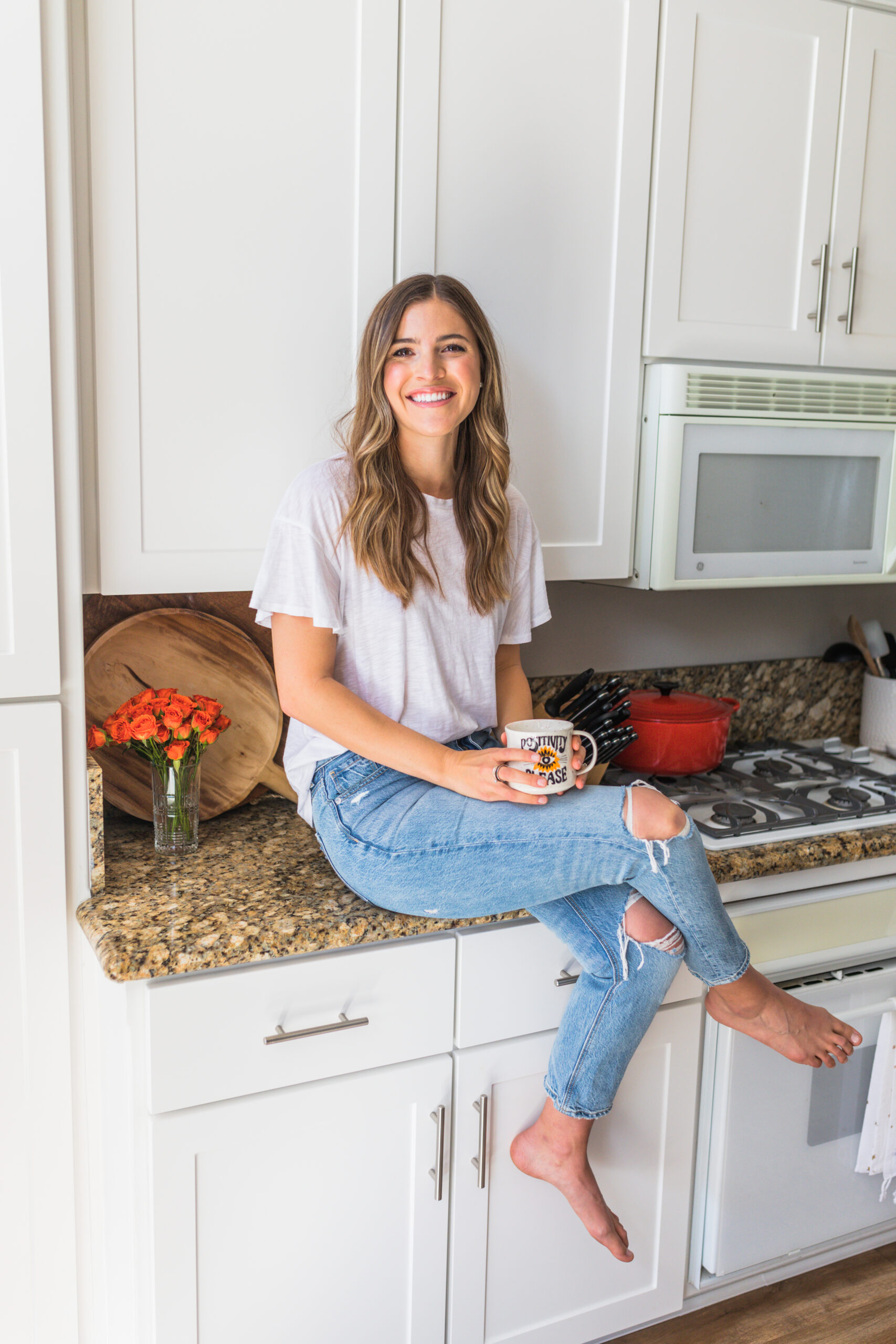


Anxiety can feel like an overwhelming force, creeping into our lives and making even the simplest tasks feel daunting. As a holistic anxiety therapist and a fellow millennial woman who’s been there, I know firsthand how crucial it is to find ways to manage anxiety that resonate with your lifestyle. Enter anxiety hobbies—the often overlooked, yet incredibly powerful, tools for easing anxiety. But we’re not talking about just any hobbies; we’re diving into those that specifically help soothe an anxious mind, nurture your soul, and bring you back to a place of calm.
In this post, we’ll explore several hobbies that can make a real difference in managing anxiety. Whether you’re a perfectionist, a people-pleaser, or someone who’s always on the go, there’s something here for you. Let’s dive into how these activities can become more than just pastimes, they can be lifelines.

Before we get into the specifics, let’s talk about why hobbies are so effective in managing anxiety. When you’re engaged in a hobby, your mind has something to focus on other than your worries. This can create a sort of meditative state, where your mind can rest, even if just for a little while. Hobbies also give you a sense of accomplishment and purpose, which can be incredibly grounding when anxiety makes you feel lost or out of control.
Engaging in enjoyable activities can significantly improve emotional health by mitigating nervous energy and promoting a positive lifestyle change.
Moreover, certain hobbies can trigger the release of feel-good chemicals in your brain, like dopamine and serotonin, which naturally help reduce anxiety. When you find a hobby that resonates with you, it can become a cherished part of your self-care routine, offering a healthy escape from the stresses of daily life.

There’s something deeply therapeutic about working with your hands, especially when it comes to repetitive actions like knitting, crocheting, or embroidery. These hobbies allow you to focus on the texture of the yarn or thread, the rhythm of your stitches, and the gradual creation of something beautiful. This kind of focused attention is a form of mindfulness, which is well-known for its anxiety-reducing benefits. Additionally, knitting, crocheting, and embroidery are effective stress relieving hobbies that help counteract the pressures of modern life.
For perfectionists, these crafts can be particularly beneficial because they allow you to let go of the need for everything to be “perfect.” Mistakes can often be corrected or incorporated into the design, teaching you that it’s okay for things to be less than perfect. It’s a gentle reminder that beauty can be found in the imperfections, and that can be a powerful lesson when dealing with anxiety.
Gardening is more than just a way to grow your own food or beautify your space, it’s a way to cultivate calm and connect with nature. The physical act of tending to plants can be grounding, helping you stay present and focused on the task at hand. The sensory experience of touching the soil, smelling the fresh earth, and hearing the rustle of leaves can all serve to soothe an anxious mind. Gardening also offers numerous health benefits, including stress relief and improved emotional well-being.
Plus, gardening gives you a sense of accomplishment. Watching something grow and thrive because of your care can be incredibly rewarding, especially when anxiety makes you feel like you’re not in control of much else in your life. And if you don’t have a garden, don’t worry! Even a few potted plants on a windowsill can provide the same benefits.
Yoga and Tai Chi are both ancient practices that combine movement with mindfulness, making them excellent hobbies for managing anxiety. These practices emphasize deep, controlled breathing and slow, deliberate movements, which can help regulate your nervous system and reduce the physical symptoms of anxiety, such as a racing heart or shallow breathing. Engaging in yoga and Tai Chi also offers significant physical health benefits, including improved flexibility, strength, and overall well-being.
What makes these practices particularly powerful for anxiety is their focus on the mind-body connection. By paying attention to how your body feels in each pose or movement, you’re brought into the present moment, which can help quiet anxious thoughts. And because these practices are adaptable to all fitness levels, they can be a great option even if you’re new to physical activity. I have a whole blog post on yoga for anxiety you can read if you want a simple way to get started.
When anxiety has you feeling like your thoughts are spinning out of control, journaling can be an incredibly grounding practice. By putting your thoughts down on paper, you give them a form—a beginning, middle, and end—that can make them feel more manageable. Journaling also allows you to explore your feelings in a safe space, without judgment, which can be cathartic. Additionally, journaling offers significant mental health benefits, such as improving cognitive function, emotional well-being, and providing stress relief.
There are many ways to approach journaling for anxiety. You might try stream-of-consciousness writing, where you let your thoughts flow freely onto the page. Or, you could focus on gratitude journaling, where you list things you’re thankful for, which can help shift your focus away from anxiety and toward positive aspects of your life. Bullet journaling, with its emphasis on organization and creativity, can also be a great option for those who find that structure helps ease their anxiety.
There’s a reason why so many people turned to baking during the pandemic—there’s something inherently soothing about the process of cooking and baking. These activities engage all your senses, from the feel of the dough beneath your hands to the aroma of spices filling the air, which can help bring you into the present moment and out of your anxious thoughts. Cooking and baking also provide stress relief, promoting relaxation and overall well-being.
Cooking and baking also provide a sense of control. When everything else feels chaotic, following a recipe can be comforting in its predictability. Plus, the act of nourishing yourself or others can be a powerful reminder of your ability to care for yourself, which is especially important when anxiety makes you feel vulnerable.
If you’re new to cooking or baking, start with simple recipes that don’t require a lot of ingredients or steps. As you gain confidence, you can experiment with more complex dishes. And remember, it’s not about creating a masterpiece—it’s about enjoying the process and finding comfort in it.
Artistic hobbies like painting, drawing, or even adult coloring can be incredibly therapeutic for anxiety. These activities allow you to express emotions that might be difficult to put into words, and the act of creating something—whether it’s a detailed drawing or a simple doodle—can be deeply satisfying. Engaging in these artistic hobbies also contributes to stress management by providing a creative outlet that promotes relaxation and emotional well-being.
The beauty of creative expression is that there are no rules. You don’t have to be “good” at it; you just have to show up and let yourself create. This freedom can be liberating, especially if anxiety has you feeling boxed in by expectations. Art can also serve as a form of meditation, helping you focus on the present moment and quiet your mind.
If you’re not sure where to start, consider picking up an adult coloring book. The repetitive action of coloring in the lines can be calming, and the finished product is something you can take pride in. Or, try freeform painting or drawing, where you let your intuition guide you and see where it takes you.

There’s nothing quite like getting lost in a good book, and for those of us who struggle with anxiety, reading can be a wonderful escape. When you’re absorbed in a story, your mind has a chance to take a break from its worries and immerse itself in another world. This can be particularly helpful during times of heightened anxiety, when you need a mental escape. Additionally, reading can lower muscle tension along with heart rate, highlighting its calming effect on the body.
Different genres can offer different benefits. Fiction can provide an escape, allowing you to live vicariously through characters who are braver or more carefree than you feel. Non-fiction, on the other hand, can offer insight and perspective, helping you understand your anxiety better or giving you new tools to cope with it. Even poetry, with its rhythmic language and emotional depth, can be a soothing balm for an anxious mind.
Whether you’re playing an instrument, singing, or just listening to your favorite tunes, music can be a powerful tool for managing anxiety. Music has a direct impact on our emotions, and certain types of music can help calm your nervous system, slow your breathing, and lower your heart rate. Additionally, engaging with music can help channel nervous energy positively, providing a productive outlet that promotes relaxation and reduces stress levels.
If you play an instrument or sing, this can be a wonderful way to express and process your emotions. You don’t have to be a professional musician to benefit from this—playing for your own enjoyment can be incredibly therapeutic. If you’re more of a listener, consider creating a playlist of songs that help you feel calm and grounded. You might also explore different genres to see what resonates with you—classical, ambient, and nature sounds are all known for their relaxing effects.
Spending time in nature is one of the most effective ways to reduce anxiety, and hiking or taking a simple walk in a natural setting can do wonders for your mental health. Nature has a way of bringing you back to the present moment, whether it’s through the sound of birds chirping, the rustle of leaves in the wind, or the sight of a beautiful sunset. Engaging in activities like hiking and nature walks can significantly improve your mental well-being by alleviating stress and enhancing overall mental health.
Hiking offers the added benefit of physical exercise, which is a well-known anxiety reducer. The rhythmic motion of walking can also be meditative, helping to clear your mind and reduce anxious thoughts. And because nature is so vast and varied, there’s always something new to discover, whether it’s a hidden waterfall, a quiet forest path, or a stunning mountain view.
If hiking feels too daunting, start with simple nature walks in your local park. The key is to immerse yourself in the sights, sounds, and smells of nature, allowing it to soothe your anxious mind.
Dance is another fantastic way to manage anxiety. Whether you’re taking a formal dance class or just dancing around your living room, the act of moving your body to music can be incredibly liberating. Dance allows you to express your emotions physically, which can be a welcome release when anxiety has you feeling tense or overwhelmed. Additionally, dancing offers many health benefits, making it a fun physical activity that can improve your overall well-being, especially after long periods of inactivity like sitting in an office.
The beauty of dance is that it doesn’t require any special skills—just a willingness to move. You don’t have to follow any rules or stick to any particular style; the goal is to let your body move in whatever way feels right to you. This freedom can be incredibly therapeutic, especially when anxiety makes you feel constrained by worries or self-judgment.
Dancing also helps to release endorphins, the body’s natural mood enhancers. Whether you’re swaying gently to a slow song or getting your heart rate up with a high-energy dance, these feel-good chemicals can help lift your mood and reduce anxiety. If you’re looking for a structured way to incorporate dance into your routine, consider trying out a dance class or following along with dance workout videos at home. But remember, even a spontaneous dance break in your living room can do wonders for your mental health.

Photography can be an excellent hobby for managing anxiety, especially if you enjoy spending time outdoors or have an eye for detail. The act of focusing on capturing a particular moment, whether it’s a beautiful sunset, a flower in bloom, or a quiet street, can help bring you into the present moment and away from anxious thoughts. Additionally, photography promotes positive stress by engaging your mind in a productive and creative activity.
Photography encourages you to slow down and really see the world around you. It invites you to find beauty in everyday moments, which can be incredibly grounding when anxiety makes everything feel overwhelming. Plus, photography allows you to express your creativity and see the world from different perspectives, which can be a refreshing change when you’re feeling stuck in a cycle of anxious thinking.
If you’re new to photography, start with your smartphone—you don’t need fancy equipment to get started. Take a walk and snap pictures of anything that catches your eye, or experiment with different angles and lighting at home. The goal isn’t to take perfect photos but to enjoy the process of seeing and capturing the world around you.
Volunteering can be a powerful way to manage anxiety, especially if your anxiety is tied to feelings of isolation or lack of purpose. When you volunteer, you have the opportunity to connect with others and make a positive impact in your community. This sense of purpose and connection can be incredibly grounding and can help shift your focus away from anxious thoughts. Volunteering is also stress relieving, as it allows you to engage in meaningful activities that promote relaxation and mental well-being.
Volunteering also allows you to step outside of your own worries and focus on helping others, which can be a welcome relief when anxiety has you feeling trapped in your own mind. Whether you’re volunteering at a local food bank, helping out at an animal shelter, or participating in a community clean-up, the act of giving back can boost your mood and reduce anxiety.
If you’re not sure where to start, think about causes that are important to you or activities you enjoy. You might also consider joining a group or organization that aligns with your values, which can provide additional social support and a sense of belonging.
Puzzles and brain games, like crosswords, Sudoku, or jigsaw puzzles, can be a great way to manage anxiety. These activities require concentration and problem-solving, which can help redirect your focus away from anxious thoughts and onto the task at hand. The satisfaction of solving a puzzle or completing a brain game can also provide a sense of accomplishment, which can be particularly soothing when anxiety makes you feel stuck or overwhelmed. Engaging in these activities can also lower stress levels, contributing to overall mental well-being.
These activities also offer a form of mental exercise, which can be beneficial for maintaining cognitive health and reducing the mental fog that sometimes accompanies anxiety. Whether you prefer word games, number puzzles, or visual challenges, there’s something for everyone, and these hobbies can easily be incorporated into your daily routine.
If you’re looking for a more social experience, consider joining a puzzle club or playing brain games with friends or family. This can add an element of fun and connection, which can further help reduce anxiety.
If you’re an animal lover, spending time with pets can be a wonderful way to manage anxiety. Pets offer unconditional love and companionship, which can be incredibly comforting when you’re feeling anxious. The routine of caring for a pet—feeding, grooming, walking, or playing—can also provide structure to your day, which can be grounding when anxiety makes everything feel chaotic. Spending time with pets after a long and busy workday can help you unwind and relax.
Spending time with pets has been shown to reduce stress and lower blood pressure, and the act of petting an animal can trigger the release of oxytocin, a hormone that promotes feelings of calm and well-being. Whether you have a dog, cat, rabbit, or even a fish, the presence of a pet can help you feel less alone and more connected.
If you don’t have a pet, consider volunteering at an animal shelter or offering to pet-sit for friends or family. This can give you the opportunity to enjoy the benefits of pet care without the long-term commitment.

Finding time for hobbies can be challenging, especially if you’re juggling work, family, and other responsibilities. But making space for these activities in your life is an important part of managing anxiety and maintaining your mental health. Here are a few tips for incorporating hobbies into your routine:

Hobbies are more than just a way to pass the time—they’re a vital tool for managing anxiety and maintaining your overall well-being. Whether you’re crafting, gardening, dancing, or caring for a pet, these activities offer a chance to slow down, reconnect with yourself, and find joy in the little things. As a holistic anxiety therapist, I encourage you to explore different hobbies and see which ones resonate with you. You might be surprised by how much these simple activities can improve your mood and help you find a sense of calm in your everyday life. Engaging in a stress relieving hobby can significantly alleviate stress and promote mental well-being, providing therapeutic benefits and a sense of accomplishment.
Remember, managing anxiety is a journey, and it’s okay to take it one step at a time. By incorporating hobbies into your routine, you’re giving yourself the gift of joy, relaxation, and self-care—a gift that keeps on giving, even on the toughest days.


Holistic Therapist, Nutritional Therapy Practitioner and Yoga Instructor in Elk Grove, California.
© Copyright 2024 That’s so well. All Rights Reserved. LICENSED MARRIAGE AND FAMILY THERAPIST #107356. DISCLAIMER. PRIVACY PRACTICES. TERMS AND CONDITIONS. Website by Chloe Creative. 9727 Elk Grove Florin Road, Elk Grove Ca 95624